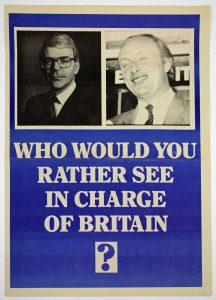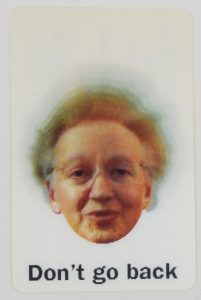 The Conservative Party, led by John Major, won a fourth successive general election in 1992 gaining 336 seats in parliament.
The Conservative Party, led by John Major, won a fourth successive general election in 1992 gaining 336 seats in parliament.
Did you know? By the time John Major called a general election in 1997 his 21 seat majority had been reduced to zero due to by-election losses and MPs defecting to other parties.
 The 2005 general election resulted in the Labour Party, led by Tony Blair, winning a historic third term. The first and only time Labour has won three consecutive elections.
The 2005 general election resulted in the Labour Party, led by Tony Blair, winning a historic third term. The first and only time Labour has won three consecutive elections.
Did you know? The Liberal Democrats won the largest number of seats (62) by a Liberal party since 1923.
 The 2010 general election returned a hung parliament where no party held a majority of seats. The Conservative Party, led by David Cameron, won the most seats (306) and went on to form a coalition government with the Liberal Democrats led by Nick Clegg.
The 2010 general election returned a hung parliament where no party held a majority of seats. The Conservative Party, led by David Cameron, won the most seats (306) and went on to form a coalition government with the Liberal Democrats led by Nick Clegg.
Did you know? In 2010 Rushanara Ali, Shabana Mahmood, and Yasmin Qureshi became the UK’s first female Muslim MPs.
 The Conservative Party led by Theresa May was widely predicted to win the 2017 general election by a landslide but in fact failed to win a majority of seats in parliament. May continued as Prime Minister, leading a minority administration which governed with the support of the Democratic Unionist Party.
The Conservative Party led by Theresa May was widely predicted to win the 2017 general election by a landslide but in fact failed to win a majority of seats in parliament. May continued as Prime Minister, leading a minority administration which governed with the support of the Democratic Unionist Party.
Did you know? 3,303 candidates contested 650 seats in parliament in the 2017 election.
 The 2019 general election was dominated by the ramifications of the vote to leave the European Union. The Conservative Party led by Boris Johnson won with a majority of 80 seats.
The 2019 general election was dominated by the ramifications of the vote to leave the European Union. The Conservative Party led by Boris Johnson won with a majority of 80 seats.
Did you know? Boris Johnson was the 14th Prime Minister since 1945, and the 11th to be a graduate of the University of Oxford. Liz Truss and Rishi Sunak were also educated at Oxford bringing the number up to 13 out of 16 post war leaders.